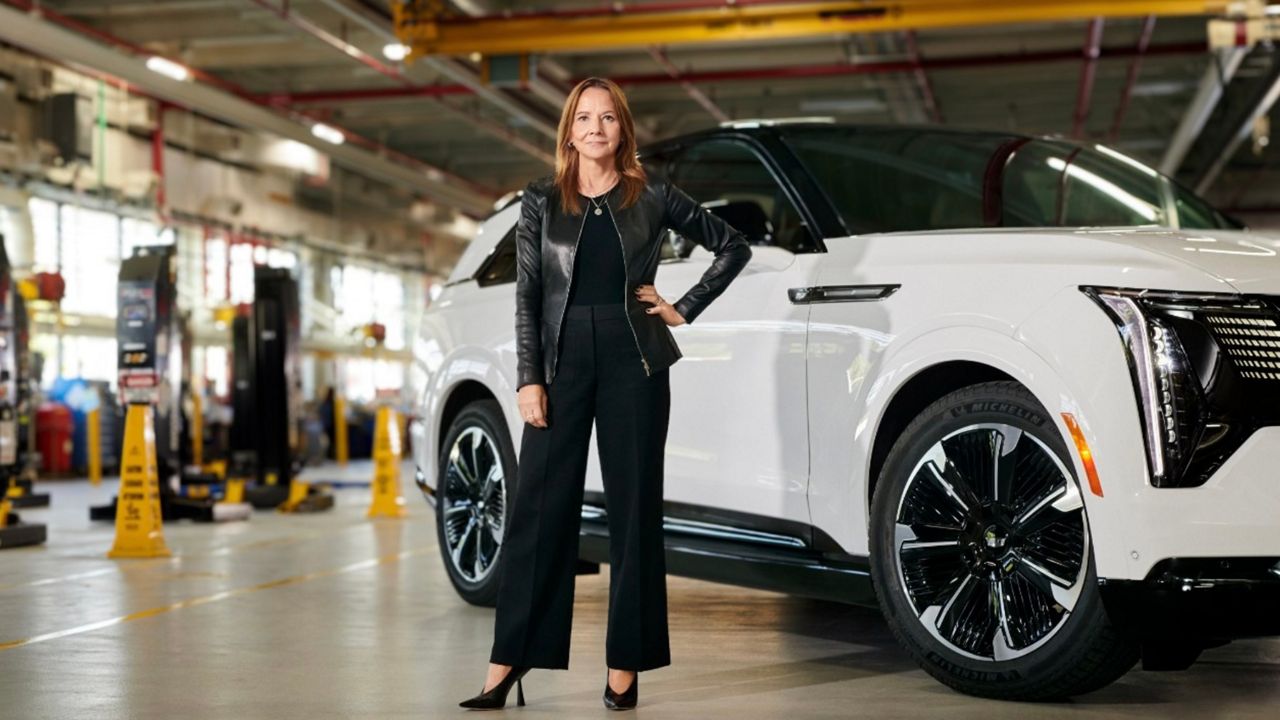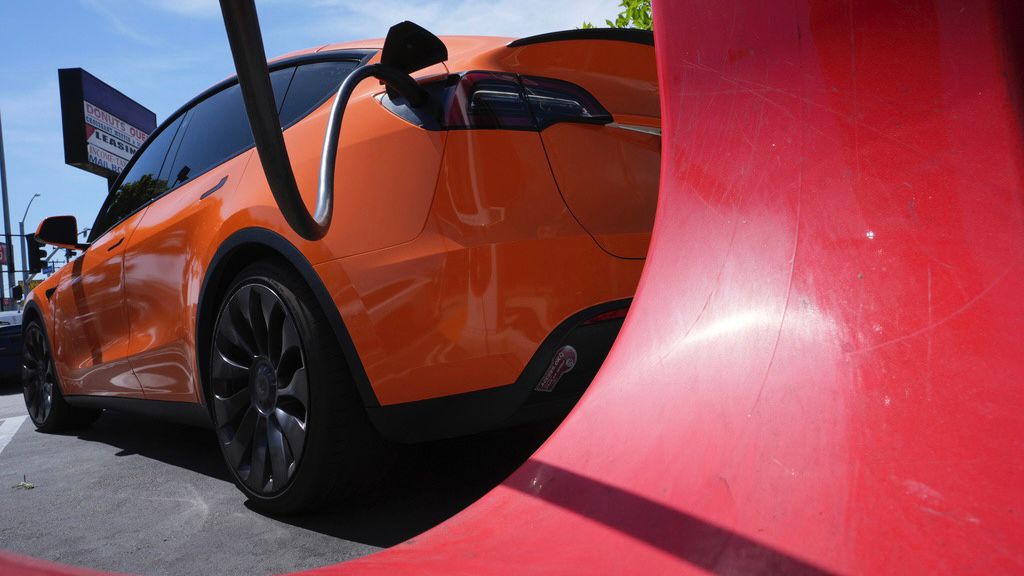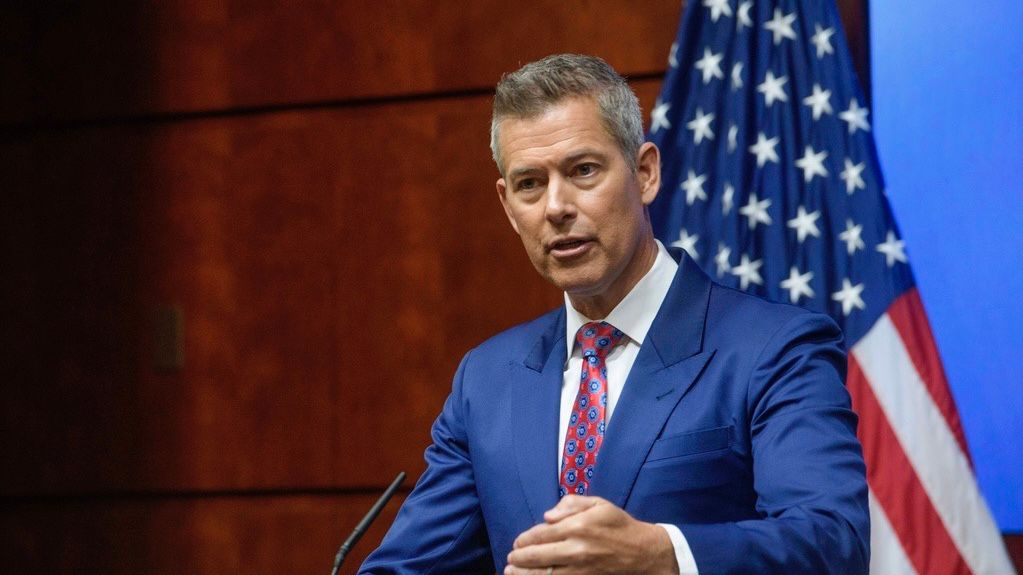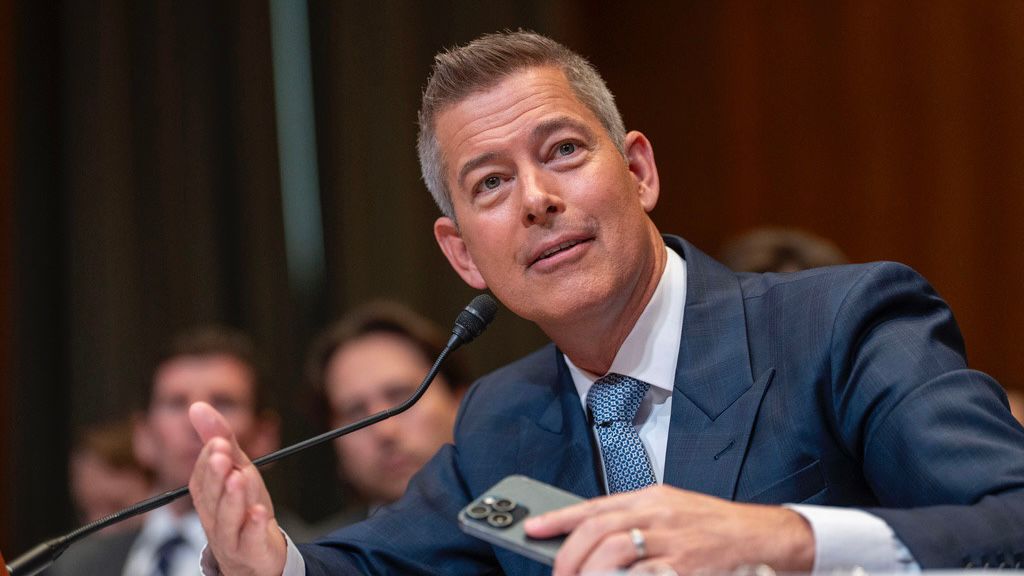NEW YORK — One day after General Motors announced it made its largest investment ever in an engine plant to make gas- and diesel-powered V-8s for trucks and SUVs, CEO Mary Barra said the Big Three automaker still believes in an all-electric future.
Speaking during the Wall Street Journal’s Future of Everything conference Wednesday, Barra said the $888 million investment in the V-8 engine plant is aligned with GM's goal of improving fuel efficiency and offering customers more choice.
“We have more EVs in the market right now than anyone else in this country,” Barra said. “We’re growing market share. I see a path to all electric vehicles. It depends on getting the infrastructure ready, but I think we’ll get there because electric vehicles are better.”
In 2021, Barra said the company planned to phase out its gas and diesel engines and go all electric by 2035, but she started to backpedal on that target last year, saying GM didn’t have the production capacity and that the EV rollout will instead take place over decades.
On Wednesday, Barra defended General Motors’ backing of a Senate vote last week to end California’s EV mandate. In 2022, the state said it would ban the sale of new gas-powered cars by 2035 — a move that was later followed by 11 other states.
“I’ve been saying for a couple of years now that I thought the regulatory environment was getting in front of the customer,” Barra said. “We’re committed to the customer, and the customer was telling us they weren’t ready.”
She said for EVs to meet the required mandate, 37% of new vehicle sales need to be electric right now. In April, the national average for new EV sales was 7%.
“I’ve always said we need one national standard so car companies can develop the technology more efficiently and more effectively,” she said. ‘We tried to work at both the state and federal level, but what happened in Congress last week was necessary to protect the customer.”
Earlier this month, General Motors said it expected to take a $4-5 billion financial hit from the tariffs President Donald Trump enacted in April. She declined to say Wednesday whether the company planned to pass along those costs to customers, saying instead that vehicles prices are “very dynamic” and influenced by a variety of factors.
Barra said she talks to Trump and administration officials on a regular basis.
“We think having a strong manufacturer base in this country is very important,” Barra said, adding that 50% of the company’s vehicles are made in North America and comply with the U.S.-Mexico-Canada Agreement so they are not subject to the 25% tariff on many other imports from Mexico and Canada.
“For decades now, it has not been a level playing field for U.S. automakers globally with tariffs or non-tariff trade barriers,” Barra said. “Tariffs is one tool the administration can use to level the playing field.”
As Chinese electric vehicle companies make inroads with countries throughout the world, offering high-tech cars for prices far below what Americans pay, Barra said it’s important for U.S. automakers to continue to innovate.
“We can’t let ourselves fall behind. It’s important that other companies do what GM is doing: keep investing in the technology of the future — EVs, connectivity, AI,” she said. “That’s where I see the president looking deeply, to make sure there isn’t unfair advantages trying to displace the innovation or manufacturing in this country.”










